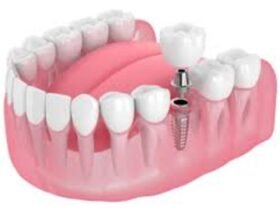In our contemporary world, where the pace of life continues to accelerate, the significance of efficient recovery practices cannot be overstated. Recuperbate represents a pioneering approach to wellness, advocating for a strategic blend of recuperation and balance. This comprehensive guide delves into how Recuperbate can be the linchpin in enhancing physical, mental, and emotional health. By understanding and implementing its principles, individuals can not only replenish their energies but also enhance overall life quality, making resilience more attainable in the face of daily stresses.
Understanding Recuperbate
Definition and Origin of Recuperbate
Recuperbate is derived from blending the concepts of ‘recuperate’ and ‘rebalance,’ signaling a shift from passive recovery to an active, holistic approach to regaining vitality. This term encapsulates a movement towards recognizing recovery as a dynamic component of a healthy lifestyle. The origin of Recuperbate is rooted in addressing the modern need for more effective recovery techniques that harmonize the body and mind, adapting ancient principles of rest and renewal to suit the complexities of modern living.
The Core Concept of Recuperbate
The essence of Recuperbate lies in its holistic approach, which sees recovery as a multi-dimensional process involving physical rest, nutritional support, mental decompression, and emotional nurturing. Unlike traditional views that often compartmentalize recovery into either physical or psychological realms, Recuperbate promotes a comprehensive model. This model incorporates elements such as strategic nutrition, targeted physical activities, cognitive rest, and emotional support, forming a synergistic approach that enhances the body’s intrinsic healing capabilities.
The Need for Recuperbate in Modern Life
Modern Challenges
Today’s lifestyles often involve juggling multiple responsibilities, persistent connectivity, and a bombardment of information, all of which can lead to an overload affecting our physical and mental states. The chronic stress resulting from prolonged exposure to such demands can degrade our health and well-being, making effective recovery not just beneficial but necessary.
Consequences of Neglecting Recovery
Ignoring the need for adequate recovery can lead to a range of debilitating outcomes. Physically, it manifests as chronic fatigue, weakened immunity, and increased susceptibility to injuries. Mentally, the lack of recovery can cause cognitive decline, reduced focus, and decision-making capabilities. Emotionally, it contributes to heightened anxiety, diminished coping mechanisms, and overall emotional instability. This cascade of effects underscores the critical role recovery plays in maintaining our health and functional capacities.
Components of Recuperbate
Physical Recovery
Effective physical recovery within the Recuperbate framework involves several key practices:
- Quality Sleep: Fundamental to recovery, adequate sleep allows for the repair of tissue, consolidation of memory, and rebalancing of hormones.
- Nutrition and Hydration: Proper intake of nutrients and fluids is crucial for replenishing depleted stores, supporting metabolic functions, and facilitating the detoxification processes.
- Active Recovery: Techniques such as light stretching, yoga, and controlled physical activities not only help in maintaining muscle tone and flexibility but also enhance blood circulation, which is vital for the removal of toxins and delivery of nutrients to tired muscles.
Mental Recovery
Mental rejuvenation is achieved through:
- Mindfulness and Meditation: These practices help in detaching from the stresses of the day, allowing the mind to reset and regain clarity and focus.
- Journaling and Cognitive Rest: Engaging in reflective writing helps to declutter the mind, process emotions, and align personal goals, thereby contributing to mental clarity and peace.
Emotional Recovery
The emotional component of Recuperbate involves:
- Social Interactions: Engaging meaningfully with others provides emotional support and helps mitigate feelings of isolation or stress.
- Self-care Practices: Activities that promote enjoyment and relaxation are crucial for maintaining emotional balance and enhancing life satisfaction.
People Also Read: Love2Love.lv: Your Ultimate Guide to Meaningful Online Relationships
The Science Behind Recuperbate
Research and Studies
Numerous studies support the multifaceted approach of Recuperbate, demonstrating its effectiveness in not just restoring physical and mental health but also in enhancing emotional resilience. These studies highlight the interplay between various recovery modalities, illustrating how combined practices can synergistically enhance overall well-being.
Biological Impacts
Recuperbate influences several biological processes, including reducing systemic inflammation, enhancing neurotransmitter function, and improving hormonal balance. These changes are critical for effective recovery, as they directly impact energy levels, mood regulation, and physical health.
Implementing Recuperbate in Daily Life
Practical Tips
Implementing Recuperbate effectively involves integrating its principles into daily routines:
- Routine Development: Establishing a consistent schedule that includes designated times for physical and mental recovery practices.
- Customization: Adapting the principles of Recuperbate to meet individual needs and lifestyle considerations, ensuring that the practices are personally relevant and sustainable.
Customization for Individual Needs
Recognizing personal limits and recovery needs is essential for customizing Recuperbate strategies. This personalization makes the recovery process more effective and enjoyable, leading to better compliance and more significant health benefits.
Benefits of Recuperbate
Short-term Benefits
Engaging in Recuperbate can lead to immediate improvements in mood and energy levels, decrease in muscle soreness, and enhanced cognitive function, which collectively contribute to a more productive and satisfying daily experience.
Long-term Benefits
Long-term engagement with Recuperbate practices fosters resilience against stress, reduces the risk of chronic diseases, promotes sustained energy levels, and enhances overall life satisfaction. These benefits are crucial for maintaining a high quality of life in the long run.
Case Studies and Success Stories
Real-life Examples
Illustrative anecdotes and case studies of individuals who have embraced Recuperbate successfully can serve as powerful testimonials to the effectiveness of its principles. These stories can offer practical insights and inspire others to adopt similar practices in their lives.
Comparative Analysis
Analyzing the before and after scenarios of individuals who have integrated Recuperbate into their lives effectively demonstrates the transformative potential of comprehensive recovery practices. This comparative analysis can highlight tangible improvements in health, well-being, and performance.
Challenges and Considerations
Common Obstacles
While adopting Recuperbate, individuals may face challenges such as time constraints, lack of motivation, or limited resources. Addressing these obstacles head-on with practical solutions and support can facilitate smoother implementation.
Overcoming These Challenges
Strategies to overcome these barriers include simplifying routines, seeking social support, and using technology to track and motivate progress. These strategies can help individuals integrate Recuperbate practices more seamlessly into their lives.
Tools and Resources
Apps and Technology
Technology can play a crucial role in supporting Recuperbate practices. Apps that track sleep, nutrition, and exercise, as well as those that provide guided meditation and mindfulness exercises, can be invaluable in helping users adhere to their recovery routines.
Books and Guides
Recommending comprehensive resources such as books and online guides on recovery techniques can provide readers with in-depth information and additional strategies to enhance their understanding and application of Recuperbate.
Conclusion
Summary of Key Points
This article has explored the extensive benefits and applications of Recuperbate, a holistic approach to recovery that is essential for maintaining and enhancing physical, mental, and emotional health in a demanding world.
Call to Action
As we continue to face increasing pressures in our daily lives, adopting Recuperbate practices is not just beneficial; it is essential. By prioritizing recovery, we invest in our long-term health and well-being, ensuring we can perform at our best while enjoying a balanced and fulfilling life. Embrace Recuperbate today, and start your journey toward a healthier, more vibrant self.
FAQs about Recuper bate
1. What is Recuper bate?
Recuperbate is a comprehensive approach to recovery that combines elements of physical rest, nutritional support, mental relaxation, and emotional nurturing. It focuses on enhancing the body’s natural healing processes and improving overall well-being by adopting proactive recovery practices rather than just passive rest.
2. Who can benefit from Recuper bate?
Anyone can benefit from Recuperbate, especially individuals who face high levels of physical or mental stress daily. This includes athletes, professionals in high-stress jobs, busy parents, and students. It’s also beneficial for those recovering from physical injuries or mental burnout.
3. How does Recuper bate differ from traditional recovery methods?
Unlike traditional recovery methods that often focus solely on physical rest (like sleeping and resting), Recuper bate takes a holistic approach. It integrates physical recovery with mental and emotional rejuvenation techniques, offering a more comprehensive restoration of energy and well-being.
4. What are some specific practices involved in Recuperbate?
Recuperbate involves several practices tailored to address physical, mental, and emotional recovery. These include quality sleep, proper nutrition, hydration, mindfulness meditation, journaling, light physical activities (such as yoga or walking), and engaging in social and creative activities that promote emotional health.
5. How often should I practice Recuperbate techniques?
The frequency of Recuperbate practices can vary depending on individual needs and lifestyle. However, incorporating small practices daily, like mindfulness or proper hydration, alongside more extensive weekly practices such as deep relaxation sessions or social outings, can provide a balanced recovery routine.
6. Can Recuper bate help with mental health issues like anxiety and depression?
Recuperbate can be a valuable component of a broader mental health strategy. Techniques like mindfulness, meditation, and emotional self-care can help manage symptoms of anxiety and depression by reducing stress and improving emotional resilience. However, they should complement, not replace, professional treatment when needed.
7. What is the best way to start integrating Recuper bate into my life?
Begin by identifying areas of your life that need more attention, whether it’s physical rest, mental clarity, emotional stability, or nutritional support. Start integrating relevant Recuperbate practices gradually. For example, you might start with improving your sleep hygiene or introducing 10 minutes of meditation into your daily routine.
8. Are there any resources or tools to help me implement Recuper bate effectively?
Yes, there are many resources available to help guide you in Recuper bate. Apps that track sleep, nutrition, and exercise are helpful, as are mindfulness and meditation apps. Books on holistic recovery, wellness blogs, and even guided sessions or workshops can provide additional support and information.
9. How can I measure the effectiveness of Recuper bate in my life?
Effectiveness can be measured by observing changes in your physical energy levels, mental clarity, emotional stability, and overall health. Keeping a journal to note these changes and how you feel day-to-day can help track progress and determine what practices are most beneficial for you.
10. Is Recuper bate suitable for those with chronic health conditions?
Yes, many aspects of Recuper bate are suitable and can be beneficial for those with chronic health conditions, as they focus on gentle recovery and overall well-being. However, it is crucial to consult with healthcare providers to tailor the practices to accommodate specific health needs and limitations.

















Leave a Reply